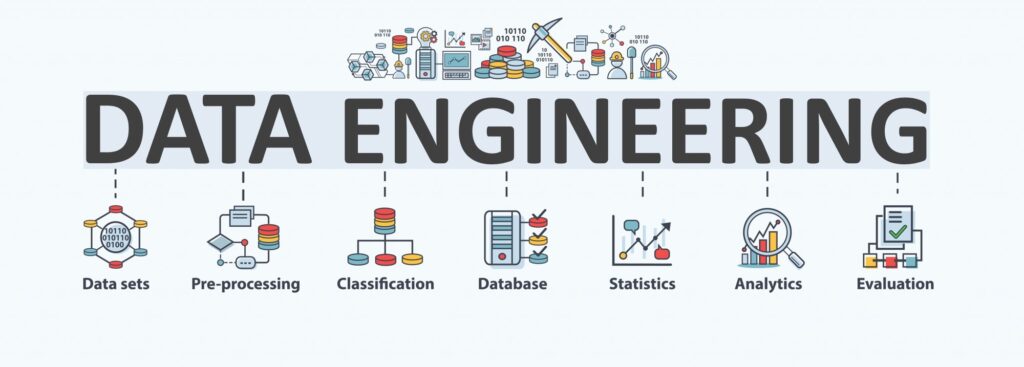
Data engineering plays a crucial role in ensuring that data is accessible, organized, and ready for analysis, forming the foundation for data-driven decision-making. Here are the top five things you need to know about data engineering:
- The Backbone of Data Analytics
Data engineering is essential for building and maintaining the infrastructure that allows data to flow smoothly from various sources to analytical tools. It ensures that data is collected, transformed, and stored in a way that enables meaningful insights, serving as the backbone for data analytics and data science. - ETL and ELT: The Heart of Data Engineering
Data engineering involves processes like ETL (Extract, Transform, Load) and ELT (Extract, Load, Transform).
ETL: In this traditional approach, data is extracted from different sources, transformed into a format suitable for analysis, and then loaded into a data warehouse.
ELT: This modern approach loads raw data into the data warehouse first and transforms it afterward, taking advantage of cloud-based storage and processing power.
Choosing the right process depends on factors like data volume, cloud infrastructure, and analysis requirements, and both approaches ensure that data is accurate, consistent, and accessible.
ELT Can Enhance Data Analytics Efficiency
In modern data practices, ELT (Extract, Load, Transform) is an approach where raw data is first loaded into a data warehouse and then transformed as needed for specific analyses. This method is often preferred over the traditional ETL (Extract, Transform, Load) for handling large data volumes more efficiently, as it allows businesses to analyze raw data quickly and make transformations on demand.
- Data Pipelines Enable Automation
Data pipelines automate the flow of data from its source to its destination, minimizing manual data handling. Data engineers design and implement these pipelines to handle large data volumes in real time, ensuring that information is continuously updated. Automated data pipelines allow companies to process more data at scale, reducing time and effort while improving data availability. - Big Data Requires Specialized Tools and Techniques
With data growing rapidly, traditional data processing methods may not be sufficient. Data engineers use specialized big data tools like Apache Hadoop, Spark, and Kafka to process and analyze massive datasets. These technologies enable organizations to work with large data volumes efficiently, providing deeper insights and driving more informed decisions. - Data Quality is a Top Priority
High data quality is essential for accurate analysis and decision-making. Data engineers implement data validation, cleaning, and error detection processes to ensure that the data is reliable and ready for analysis. Prioritizing data quality helps organizations avoid costly errors and make data-driven decisions with confidence.



